|
The Emirates Airline Festival of Literature picked up another accolade Monday, winning Best Family Friendly Day Out at the Time Out Dubai Kids Awards 2016. Isobel Abulhoul, OBE, CEO and Trustee of the Emirates Literature Foundation and Director of the Emirates Airline Festival of Literature, accepted the Award. ‘We could not be prouder of what our Festival has achieved over the past eight years,’ Abulhoul said. ‘Families have always been at the heart of the Festival, and the aim from the beginning was to ensure that the programme offered something for everyone, ages 1 to 99+ years, plus a wide variety of interests, from architecture to zoology! Receiving official recognition that the Festival is the perfect day out for the entire family delights the whole team, and gives us renewed energy for the busy year ahead.’ Established in 2009, the Emirates Airline Festival of Literature aims to foster a reading culture among young people in the UAE and the region. The children’s programme has been a vital aspect of the Festival, with the highlights including the Fringe events which give youngsters the opportunity to delve into drama, poetry and art as well as the Education Days where Festival authors from around the world visit schools and inspire students to pick up a book and read. The student competitions have also continued to grow and engage the youth of the region, by creating platforms for them to express their creativity, through participation in reading quizzes, or through writing or performance poetry. Held under the patronage of His Highness Sheikh Mohammad bin Rashid Al Maktoum, Vice-President and Prime Minister of the UAE and Ruler of Dubai, the 2017 Festival will be held from 3-11 March. For more information about the Emirates Airline Festival of Literature and for competitions and updates, the Festival can be found online, on Facebook, Twitter, Instagram and YouTube source: press release
0 Comments
Yesterday (Monday) at the Art Gallery of Ontario in Toronto, more than 100 media and members of the publishing industry gathered for the unveiling of the 2016 Scotiabank Giller Prize shortlist.
Jury members Lawrence Hill, Jeet Heer, Samantha Harvey, Kathleen Winter and Alan Warner were on hand to announce the 2016 finalists and read a citation for each title. The six titles were chosen from a longlist of 12 books announced on September 7, 2016. One hundred and sixty-one titles were submitted by 69 publisher imprints from every region of the country. The books shortlisted for the 2016 Scotiabank Giller Prize are: Mona Awad for her novel '13 Ways of Looking at a Fat Girl' published by Penguin Canada In her brilliant, hilarious and at times shocking debut, Mona Awad simultaneously skewers the body image-obsessed culture that tells women they have no value outside their physical appearance, and delivers a tender and moving depiction of a lovably difficult young woman whose life is hijacked by her struggle to conform. A huge BookFabulous recommendation. I absolutely loved it! Gary Barwin for his novel 'Yiddish for Pirates' published by Random House Canada Set in the years around 1492, Yiddish for Pirates recounts the compelling story of Moishe, a Bar Mitzvah boy who leaves home to join a ship's crew, where he meets Aaron, the polyglot parrot who becomes his near-constant companion. From a present-day Florida nursing home, this wisecracking yet poetic bird guides us through a world of pirate ships, Yiddish jokes and treasure maps. But Inquisition Spain is a dangerous time to be Jewish and Moishe joins a band of hidden Jews trying to preserve some forbidden books. He falls in love with a young woman, Sarah; though they are separated by circumstance, Moishe's wanderings are motivated as much by their connection as by his quest for loot and freedom. When all Jews are expelled from Spain, Moishe travels to the Caribbean with the ambitious Christopher Columbus, a self-made man who loves his creator. Moishe eventually becomes a pirate and seeks revenge on the Spanish while seeking the ultimate booty: the Fountain of Youth. Emma Donoghue for her novel 'The Wonder' published by HarperCollins Publishers Ltd An eleven-year-old girl stops eating, but remains miraculously alive and well. A nurse, sent to investigate whether she is a fraud, meets a journalist hungry for a story. Set in the Irish Midlands in the 1850s, 'The Wonder' - inspired by numerous European and North American cases of 'fasting girls' between the sixteenth century and the twentieth - is a psychological thriller about a child's murder threatening to happen in slow motion before our eyes. Pitting all the seductions of fundamentalism against sense and love, it is a searing examination of what nourishes us, body and soul. Catherine Leroux for her novel 'The Party Wall' published by Biblioasis International Translation Series, translated by Lazer Lederhendler Catherine Leroux's first novel, translated into English brilliantly by Lazer Lederhendler, ties together stories about siblings joined in surprising ways. A woman learns that she absorbed her twin sister's body in the womb and that she has two sets of DNA; a girl in the deep South pushes her sister out of the way of a speeding train, losing her legs; and a political couple learn that they are non-identical twins separated at birth. 'The Party Wall' establishes Leroux as one of North America's most intelligent and innovative young authors. Madeleine Thien for her novel 'Do Not Say We Have Nothing' published by Alfred A. Knopf Canada Also shortlisted for the Man Booker Prize 2016 In Canada in 1991, ten-year-old Marie and her mother invite a guest into their home: a young woman who has fled China in the aftermath of the Tiananmen Square protests. Her name is Ai-Ming. As her relationship with Marie deepens, Ai-Ming tells the story of her family in revolutionary China, from the crowded teahouses in the first days of Chairman Mao's ascent to the Shanghai Conservatory in the 1960s and the events leading to the Beijing demonstrations of 1989. It is a history of revolutionary idealism, music, and silence, in which three musicians, the shy and brilliant composer Sparrow, the violin prodigy Zhuli, and the enigmatic pianist Kai struggle during China's relentless Cultural Revolution to remain loyal to one another and to the music they have devoted their lives to. Forced to re-imagine their artistic and private selves, their fates reverberate through the years, with deep and lasting consequences for Ai-Ming - and for Marie. Written with exquisite intimacy, wit and moral complexity, Do Not Say We Have Nothing magnificently brings to life one of the most significant political regimes of the 20th century and its traumatic legacy, which still resonates for a new generation. It is a gripping evocation of the persuasive power of revolution and its effects on personal and national identity, and an unforgettable meditation on China today. Zoe Whittall for her novel 'The Best Kind of People' published by House of Anansi Press Inc. George Woodbury, an affable teacher and beloved husband and father, is arrested for sexual impropriety at a prestigious prep school. His wife, Joan, vaults between denial and rage as the community she loved turns on her. Their daughter, Sadie, a popular over-achieving high school senior, becomes a social pariah. Their son, Andrew, assists in his father’s defense, while wrestling with his own unhappy memories of his teen years. A local author tries to exploit their story, while an unlikely men’s rights activist attempts to get Sadie onside their cause. With George locked up, how do the members of his family pick up the pieces and keep living their lives? How do they defend someone they love while wrestling with the possibility of his guilt? With exquisite emotional precision, award-winning author Zoe Whittall explores issues of loyalty, truth, and the meaning of happiness through the lens of an all-American family on the brink of collapse. Students, are you ready for another battle of the books and reciting poetry? 'The Readers’ Cup' and 'Qasidah par Coeur' competitions are back and it's time for you to register. And don't forget to submit your entries for the Oxford University Press Story Writing Competition and the Taaleem Award.
Taaleem Award The theme for the 2017 Taaleem Award is Journeys. Entries can be submitted online until 20 November 2016 The Oxford University Press Story Competition The theme for the 2017 Oxford University Press Story Competition is Journeys. Entries can be submitted online until 20 November 2016 Readers’ Cup The Readers’ Cup is a quiz-style competition that has grown in popularity around the GCC. Teams of students, selected by their schools, will compete to demonstrate their understanding of selected books by authors coming to the 2017 Festival. To read the rules and register teams, click here. 'Qasidah Par Coeur' Competition The 'Qasidah par Coeur' Competition is a performance-based poetry competition in which students perform poems in Arabic and English. 'Qasidah par Coeur' is not just a recitation, but rather a chance to demonstrate a more in-depth understanding of the chosen poems. Schools can read the rules and register teams here. How September Celebrated The Centenary Of The World's Best And Most Loved Storyteller Roald Dahl19/9/2016 On the occasion of this month being Roald Dahl's centenary I thought I would supply links that have popped up online related to the subject at hand (one's I've particularly enjoyed). Do let me know of others you may have come across too... The Chinese Connection: It should come as no surprise that the creator of 'Charlie and the Chocolate Factory' should have a favourite sweetshop. I, for one, would have been disappointed to learn otherwise. It's on 11 High Street in Llandaff in Wales which is Dahl's birthplace. But if you're getting your hopes up to sampling some of his favourites, think again! it's a Chinese takeway now! Dumplings anyone? The Oxford Connection: What do you give someone who's been given everything for their centenary? A dictionary of course! and that's just what the clever people behind Oxford English Dictionary have decided to do in celebration of the author, and screenwriter. They've also put his name on it and called it the 'Oxford Roald Dahl Dictionary' and it's written in a new language: Dahlesque. Yes. Really. See HERE. They've gone one step further and have in their latest update of the 'Oxford English Dictionary' included all the delightful words that he created entirely for his books but then as if by magic these words found their way in to the real world and became part of our everyday repertoire: frightsome, scrummy, scrumptious, splendiferous) in addition to Oompa Loompa and the 'witching hour'. To see all words and revised phrases, click HERE. Roald Dahl never used the term gobblefunk to describe his made-up language. The word appears in The BFG only as a verb, where the giant gently chides Sophie for gobblefunking (i.e playing around) with words. But that is now the accepted name for the lexicon of words that he invented: all 393 of them, as counted for the Oxford Roald Dahl Dictionary. The Fruit Connection: In Cardiff, a giant peach took to the streets of Cardiff this weekend to mark Roald Dahl's centenary and many dressed up in outfits of his book characters. It's heart warming to watch that peach roll turning Cardiff into a magical 'city of the unexpected'! To read the BBC report and find out how the peach was painted, click HERE. by Rana Asfour Meet Esther Jacoby, author of ‘New Life Cottage’ who has a marvellous theory. She believes that we are born with a daily number of words that need to be offloaded one way or the other, else we get ill. Some of us, she explains, choose to deplete their reserve through everyday speech. Others, like Jacoby herself who professes to a great passion for words and a large word count, have no other recourse but to turn to writing as their outlet of choice. Jacoby is an author with many talents. A holder of a degree in maths, she has also received formal training in ballroom and Latin dancing as well as dabbling in a bit of belly dancing on the side too. For a time she worked as a care assistant for physically disabled adults and trained with the British Judo Squad Team. This is also a woman who looks to her herd of hippos (albeit plastic ones) as her lucky charm. Above all else, Jacoby identifies herself as a writer and author first and foremost recognizing the magic and power of storytelling from a very early age. ‘I grew up in Germany. And although my mum was a teacher I was a late developer when it came to writing and especially reading. In my class I was the last to read and was eight by the time I finally did. When I was thirteen, I had to take the bus each day to and from school because we lived out of town. Many nasty people would take the same commute and so to avoid any trouble I would read. One day, a girl on the bus asked me to read to her from my book so I did. Soon, I was reading to the whole bus. Everyone became engrossed in the stories including the bus driver. I discovered that not only did I have a voice that carried but that books had power and I too wanted to be a part of that’. Jacoby moved to Abu Dhabi in 2015 as a freelance Oil and Gas Safety workshop expert. With over twenty years of experience that has taken her to many interesting places around the world such as Houston, London, Angola, and Qatar to name a few, it comes as no surprise when she mentions the indelible effect her experiences on the job have had on her writing. ‘A big part of my work involves writing a lot of reports with very tight deadlines with which to write them in. This has helped in training me to put on paper exactly what it is I want to say taking every effort to choose the right words in order to get it right from the very first try. But this technical approach to writing also means that when I come to edit my work, I am a timid re-writer, because I feel I have said what I want to say in the best possible way from the first go'. 'Thanks to the cyclical nature of my work,' she adds, 'I have free time in between jobs to write. Since moving to Abu Dhabi, I have completed and self-published my debut novel ‘New Life Cottage’ which I have wanted to do since I was seventeen years old. Within a week or so after that, I started on the second one ‘Boy in the Wardrobe’. Since then I have also written two other books ‘The Wait’ which is a love story based partly on real events and centres around a guy I was planning to marry and then dumped on the day I completed the book and ‘Slave’ which revolves around events in my husband’s life. However, the titles are working titles as the books, although completed, are yet unpublished because I’ve decided to try traditional publishing. I am looking for an agent who can make that possible’. I enjoy a good murder mystery and have read most of Agatha Christie's work. I also enjoy Ian Rankin who I met twice in Houston. My favourite book of all time is 'The Loves and Journeys of Revolving Jones' by Leslie Thomas. I've read it five times' - Esther Jacoby on reading choices About a year ago Jacoby joined the Abu Dhabi Writers’ Workshop in a bid to meet people who enjoyed the written word as much as she did and to share her work with serious people who were there to hone their craft. ‘Writing is hard work and you need to put in the time and dedication. Regardless of anything I am an author so for me, the workshop is like a busman’s holiday. I can go and get info as well as meet people with a similar interest. I also like the fact that there is no pressure at the workshop to write if I don’t want to. I particularly enjoy the writing prompts we receive because they give me ideas to work on. In fact my fifth book ‘Why My Father Left My Mother’ which is a work in progress, sprung from one of the weekly prompts. The workshop is also a place to receive and to offer honest feedback on your work. It has been brilliant to watch less seasoned writers gain confidence and improve their writing each week’. As many writers will agree, writing in the end is a very solitary process if writers are to make sense of the ideas and the images floating around in their head. Many draw inspiration from what goes on around them. ‘I get my ideas from life and love to ‘people watch’ all the time much like Charles Dickens. However, when I am about to sit down and write, I make sure to stay away from all distractions. Even my husband has to leave because he tends to interrupt my work. The first sentence may be slow but I have pictures in my head and know where the scene is going. Then I vomit the words on to the page and I’m on my way’. The pure effort of writing is hard enough and many authors will agree that nothing makes it on to the page with ease never mind the nuances of setting targets, sticking to word quotas, and chiselling at a piece of work for long laborious hours in what can feel like self-imposed solitary confinement. All this can stop anyone from getting started. ‘My advice,’ says Jacoby ‘is to start. Don’t listen to anyone who tells you that you are wasting your time. Just write!’ To purchase 'New Life Cottage', click HERE. To listen to Esther read excerpts from all her books, you can visit her YouTube channel (ej.worldofwords) HERE by Rana Asfour In what one can only be described as a tour de force collection of short stories, Anthony Marra manages to bring forth an array of the most dazzling and memorable pieces of work that in their entirety present the reader with a span of eighty years of Russian history dating from 1937 up until 2013 and the break down of the USSR.
‘The Tsar of Love and Techno’ is in actuality a loose novel: once the stories are read in succession, the characters as well as objects (a fictional 19th century painting by Isaak Brodsky, a mix tape) and settings (Leningrad, a herb garden, a Siberian labor camp, Grozny, Kirovsk and Chechnya) fall in together as pieces of a puzzle that threaded together reveal a tapestry about family, sacrifice, the legacy of war and the redemptive power of art. The book opens with ‘The Leopard’, the story of Roman Markin, a party member working in propaganda and the last of the Leningrad correction artists who attended the Imperial Academy of Arts before the revolution. His job, in addition to airbrushing Stalin to look puffy cheeked and robust in photos, involves finding ‘offending images in books, old newspapers, pamphlets, in paintings or as loose photographs, sitting in portrait or standing in crowds. Most could be ripped, but some censored images needed to remain as a cautionary tale. For these, obliteration by India ink was the answer. A gentle tip of the jar, a few squeezes of the eyedropper, and the disgraced face drowned beneath a glinting black pool’. When his brother is found ‘guilty of religious radicalism by an impartial and just tribunal’ and ‘received the only sentence suitable for a madman who poisoned others with the delusion that heaven awaits us’ Markin is forced to do unto his brother’s photographs what he has done to those before him. Although he had been the one to shop him, the defacing of his brother is that what finally breaks him. In a bid for redemption he rebels in the only way he is capable of under the circumstances: for every face he obliterates in a painting, he draws in the face of his brother somewhere in the background. He does that until he himself is incarcerated and charged with treason albeit for a completely different offense. And so the stories continue: a child who informs the authorities on her mother, a granddaughter of a disgraced ballerina who becomes an actress and marries the 14th richest man in Russia yet still pines for her first boyfriend; A soldier who fights in Chechnya and carries an un-listened to mix tape in his pocket compiled and given to him by his brother. There is the story of a former museum director and his blind curator, and there’s also a climactic space journey (year unknown). From the fantastic to the fantastical and in between, Marra’s confident style of writing is consistent, and captivating throughout. It feels like magical realism but it isn’t. The only magic spells here are cast by Marra in the form of perfect sentence construction, memorable characters, and vivid descriptions of setting and landscape. There is wonderment and a sense of satisfaction and achievement when the reader reconnects with familiar characters that re-appear in different stories and finally makes the vital connections that complete the final piece of the puzzles strewn across the book. It may seem like hard work but it is effort well worth it in the end. One would be correct to assume that although the recurrent theme in all of the stories is connected to time of war or its aftermath, it becomes important to point out here the pure genius of the writer who manages to maintain hope and humor throughout. There is significant emphasis on showing that there will always be two sides to any coin and that the concepts of good and bad are truly arbitrary terms. That said, the stories contain witty, painfully funny passages that far from eclipsing or downplaying the dismal circumstances in which most of the characters are steeped, simply serve to show that in these stories moments of joy follow moments of sorrow and the other way around, as does the wheel of life. But it also means that you will laugh even when it feels wrong to do so. Anthony Marra is the New York Times-bestselling author of A Constellation of Vital Phenomena, longlisted for the American National Book Award and winner of the American National Book Critics Circle’s John Leonard Prize, the Anisfield-Wolf Book Award in fiction, and the Barnes and Noble Discover Award. Check out his website HERE. Paul Beatty, Deborah Levy, Graeme Macrae Burnet, Ottessa Moshfegh, David Szalay and Madeleine Thien are announced as the six shortlisted authors for the 2016 Man Booker Prize for Fiction. Their names were announced by 2016 Chair of judges, Dr. Amanda Foreman, at a press conference at the offices of sponsor Man Group yesterday (Tuesday).
The judges remarked on the role of the novel in exploring culture and in tackling unfamiliar and challenging subjects, and on the shortlisted authors’ willingness to play with language and form. The shortlist features a variety of voices, from new names to award winners. The books cover a diverse range of subjects, from murder in 19th century Scotland to classical music in Revolutionary China. In the third year that the prize has been open to writers of any nationality, the shortlist is an even split between two British, two US and two Canadian writers. Three novels from Penguin Random House are shortlisted alongside three from small, independent publishers. 2016 Man Booker Shortlist Paul Beatty (US) - 'The Sellout' (Oneworld) A biting satire about a young man's isolated upbringing and the race trial that sends him to the Supreme Court, 'The Sellout' showcases a comic genius at the top of his game. Born in Dickens on the southern outskirts of Los Angeles, the narrator of 'The Sellout' spent his childhood as the subject in his father's racially charged psychological studies. He is told that his father’s work will lead to a memoir that will solve their financial woes. But when his father is killed in a drive-by shooting, he discovers there never was a memoir. All that’s left is a bill for a drive-through funeral. What’s more, Dickens has literally been wiped off the map to save California from further embarrassment. Fuelled by despair, the narrator sets out to right this wrong with the most outrageous action conceivable: reinstating slavery and segregating the local high school, which lands him in the Supreme Court. In his trademark absurdist style, which has the uncanny ability to make readers want to both laugh and cry, 'The Sellout' is an outrageous and outrageously entertaining indictment of our time. Deborah Levy (UK) - 'Hot Milk' (Hamish Hamilton) Two women arrive in a Spanish village - a dreamlike place caught between the desert and the ocean - seeking medical advice and salvation. One of the strangers suffers from a mysterious illness: spontaneous paralysis confines her to a wheelchair, her legs unusable. The other, her daughter Sofia, has spent years playing the reluctant detective in this mystery, struggling to understand her mother's illness. Surrounded by the oppressive desert heat and the mesmerising figures who move through it, Sofia waits while her mother undergoes the strange programme of treatments invented by Dr Gomez. Searching for a cure to a defiant and quite possibly imagined disease, ever more entangled in the seductive, mercurial games of those around her, Sofia finally comes to confront and reconcile the disparate fragments of her identity.'Hot Milk' is a labyrinth of violent desires, primal impulses, and surreally persuasive internal logic. Examining female rage and sexuality, Deborah Levy's dazzling new novel explores the strange and monstrous nature of motherhood, testing the bonds of parent and child to breaking point. Graeme Macrae Burnet (UK) - 'His Bloody Project' (Contraband) A brutal triple murder in a remote northern crofting community in 1869 leads to the arrest of Roderick Macrae, a seventeen-year-old from the village. There s no question that he is guilty, but why did he commit the crime? Was he insane? Whose account should we believe? And will he hang? A riveting drama. Ottessa Moshfegh (US) – 'Eileen' (Jonathan Cape) The Christmas season offers little cheer for Eileen Dunlop. Trapped between caring for her alcoholic father and her job as a secretary at the boys’ prison, she tempers her dreary days with dreams of escaping to the big city. In the meantime, her nights and weekends are filled with shoplifting and cleaning up her increasingly deranged father’s messes. When the beautiful, charismatic Rebecca Saint John arrives on the scene as the new counsellor at the prison, Eileen is enchanted, unable to resist what appears to be a miraculously budding friendship. But soon, Eileen’s affection for Rebecca will pull her into a crime that far surpasses even her own wild imagination. David Szalay (Canada-UK) - 'All That Man Is' (Jonathan Cape) Nine men. Each of them at a different stage of life, each of them away from home, and each of them striving – in the suburbs of Prague, beside a Belgian motorway, in a cheap Cypriot hotel – to understand just what it means to be alive, here and now. Tracing an arc from the spring of youth to the winter of old age, All That Man Is brings these separate lives together to show us men as they are – ludicrous and inarticulate, shocking and despicable; vital, pitiable, hilarious, and full of heartfelt longing. And as the years chase them down, the stakes become bewilderingly high in this piercing portrayal of 21st-century manhood. Madeleine Thien (Canada) - 'Do Not Say We Have Nothing' (Granta Books) In Canada in 1991, ten-year-old Marie and her mother invite a guest into their home: a young woman who has fled China in the aftermath of the Tiananmen Square protests. Her name is Ai-Ming. As her relationship with Marie deepens, Ai-Ming tells the story of her family in revolutionary China, from the crowded teahouses in the first days of Chairman Mao's ascent to the Shanghai Conservatory in the 1960s and the events leading to the Beijing demonstrations of 1989. It is a history of revolutionary idealism, music, and silence, in which three musicians, the shy and brilliant composer Sparrow, the violin prodigy Zhuli, and the enigmatic pianist Kai struggle during China's relentless Cultural Revolution to remain loyal to one another and to the music they have devoted their lives to. Forced to re-imagine their artistic and private selves, their fates reverberate through the years, with deep and lasting consequences for Ai-Ming - and for Marie. Written with exquisite intimacy, wit and moral complexity, 'Do Not Say We Have Nothing' magnificently brings to life one of the most significant political regimes of the 20th century and its traumatic legacy, which still resonates for a new generation. It is a gripping evocation of the persuasive power of revolution and its effects on personal and national identity, and an unforgettable meditation on China today. The American NAtional Book Awards Announces Its 2016 Longlist For Yound People's Literature12/9/2016 For sixty years, the mission of the National Book Foundation and the National Book Awards has been to celebrate the best of American literature, to expand its audience, and to enhance the cultural value of great writing in America. About the books: 'Booked' by Kwame Alexander (320 pages)
Readers follow Nick's trials and triumphs on and off the pitch in Kwame Alexander's New York Times-bestselling follow-up to 'The Crossover'. This electric and heartfelt novel-in-verse by poet Kwame Alexander bends and breaks as it captures all the thrills and setbacks, action and emotion of a World Cup match! 'Raymie Nightingale' by Kate DiCamillo (272 pages) New York Times bestselling author Kate DiCamillo returns to her roots with a moving yet witty story of an unforgettable summer friendship. For fans of Jacqueline Wilson, David Almond and Katherine Rundell. 'March: Book Three' by Andrew Aydin & John Lewis & Nate Powell (256 pages) Congressman John Lewis, an American icon and one of the key figures of the civil rights movement, joins co-writer Andrew Aydin and artist Nate Powell to bring the lessons of history to vivid life for a new generation, urgently relevant for today's world. 'When the Sea Turned to Silver' by Grace Lin (384 pages) A breathtaking, full-colour illustrated fantasy inspired by Chinese folklore, a companion to the Newbery Honor winner and New York Times bestseller 'Where the Mountain Meets the Moon', which has sold over 250,000 copies in all formats. 'When the Moon was Ours' by Anna Marie McLemore (288 pages) To everyone who knows them, best friends Miel and Sam are as strange as they are inseparable. Roses grow out of Miel s wrist, and rumours say that she spilled out of a water tower when she was five. Sam is known for the moons he paints and hangs in the trees and for how little anyone knows about his life before he and his mother moved to town. But as odd as everyone considers Miel and Sam, even they stay away from the Bonner girls, four beautiful sisters rumoured to be witches. Now they want the roses that grow from Miel s skin, convinced that their scent can make anyone fall in love. And they re willing to use every secret Miel has fought to protect to make sure she gives them up. 'Burn Baby Burn' by Meg Medina (320 pages) While violence runs rampant throughout New York, a teenage girl faces danger within her own home in Meg Medina's riveting coming-of-age novel. 'Pax' by Sara Pennypacker (288 pages) A moving story of the extraordinary friendship between a boy and his fox, and their epic journey to be reunited. Beautifully illustrated by multi-award winner, Jon Klassen. 'Ghost' by Jason Reynolds (192 pages) Ghost wants to be the fastest sprinter on his elite middle school track team, but his past is slowing him down in this first electrifying novel of a brand-new series from Coretta Scott King/John Steptoe Award winning author Jason Reynolds. 'Sachiko: A Nagasaki Bomb Survivor's Story' by Caren B. Stelson (144 pages) This striking work of narrative nonfiction tells the true story of six-year-old Sachiko Yasui's survival of the Nagasaki atomic bomb on August 9, 1945 and the heartbreaking and lifelong journey to find peace. This special book offers readers a remarkable new perspective on the final moments of World War II and their aftermath. 'The Sun is Also a Star' by Nicola Yoon (384 pages) Natasha: I’m a girl who believes in science and facts. Not fate. Not destiny. Or dreams that will never come true. I’m definitely not the kind of girl who meets a cute boy on a crowded New York City street and falls in love with him. Not when my family is twelve hours away from being deported to Jamaica. Falling in love with him won’t be my story. Daniel: I’ve always been the good son, the good student, living up to my parents’ high expectations. Never the poet. Or the dreamer. But when I see her, I forget about all that. Something about Natasha makes me think that fate has something much more extraordinary in store—for both of us. The Universe: Every moment in our lives has brought us to this single moment. A million futures lie before us. Which one will come true? Today the Islamic world celebrates the second of two Muslim holidays, Eid al-Adha, also called the 'Sacrifice Feast'. In addition to prayers and charity, it is also a time when Muslims visit family and friends offering presents to mark the occasion. If you're contemplating a present for an avid reader or an aspiring writer or even a literary connoisseur, these gift ideas should set you on your way. And remember, it's never too late to shop for a gift... These infinity scarves by Tori Tissell are the perfect way for anyone to show off some literary love in any weather! Each circular scarf is silkscreened by hand with passages from some of the world's great books, letting you cheer on 'Jane Eyre', get wrapped up in the misadventures of the denizens of 'Wuthering Heights', take a tumble down the rabbit hole with 'Alice in Wonderland', or citations from Mr. Darcy with 'Pride and Prejudice'. Hand printed in Portland ($48). Buy HERE. There is no better company than a steaming cup of tea as you open the cover of a favorite classic or turn the page of the latest thriller. Novel Teas Pouches contain 25 teabags individually tagged with literary quotes from the world over, made with English Breakfast tea made in Sri Lanka. ($14.95). Buy HERE. Are your books all tatty with dog ears? do you still lose your place when you nod off in the middle of a sentence? just snap fingerprint right around your book and point it to the last word you read and it stretches to fit any size book. Use it as a handy book strap too. Made from durable silicone rubber ($5.99). Buy HERE. The definition of a Writer: A person capable of transforming caffeine into book. Synonyms - introvert, masochist, wizard ($12). Buy HERE. So not the most glamorous gift but as any writer worth their words knows,often the best ideas for stories, characters or blog post pop into our heads in the shower — but we forget about them when we move on with our day. Problem solved with Aqua Notes. This waterproof notepad can help document the greatest of ideas ($7.71). Buy HERE.
Ravenous Readers, Abu Dhabi (info HERE) -fiction Big Little Lies by Liane Moriarty Single mum Jane has just moved to town. She's got her little boy in tow - plus the secret she's been carrying for five years. On the first day of the school run she meets Madeline - a force to be reckoned with, who remembers everything and forgives no one - and Celeste, the kind of beautiful woman who makes the world stop and stare, but is inexplicably ill at ease. They both take Jane under their wing - while careful to keep their own secrets under wraps. But a minor incident involving the children of all three women rapidly escalates: playground whispers become spiteful rumours until no one can tell the truth from the lies. Which is when the secrets come out - and now someone is going to pay with their life . To buy, click HERE American Women's Network of Abu Dhabi (AWN) - (info HERE) - non-fiction King Leopold's Ghost: A Story of Greed, Terror and Heroism in Colonial Africa by Adam Hochschild In the 1880s, as the European powers were carving up Africa, King Leopold Ii of Belgium seized for himself the vast and mostly unexplored territory surrounding the Congo River. Carrying out a genocidal plundering of the Congo, he looted its rubber, brutalized its people, and ultimately slashed its population by ten million--all the while shrewdly cultivating his reputation as a great humanitarian. Heroic efforts to expose these crimes eventually led to the first great human rights movement of the twentieth century, in which everyone from Mark Twain to the Archbishop of Canterbury participated. 'King Leopold's Ghost' is the haunting account of a megalomaniac of monstrous proportions, a man as cunning, charming, and cruel as any of the great Shakespearean villains. It is also the deeply moving portrait of those who fought Leopold: a brave handful of missionaries, travellers, and young idealists who went to Africa for work or adventure and unexpectedly found themselves witnesses to a holocaust. With great power and compassion, King Leopold's Ghost will brand the tragedy of the Congo--too long forgotten--onto the conscience of the West. To buy, click HERE. Abu Dhabi Book Club (info HERE) - non-fiction Zeitoun by Dave Eggers In August 2005, as Hurricane Katrina blew in, the city of New Orleans has been abandoned by most citizens. But resident Abdulrahman Zeitoun, though his wife and family had gone, refused to leave.
For days he traversed an apocalyptic landscape of flooded streets by canoe. But eventually he came to the attention of those 'guarding' this drowned city. Only then did Zeitoun's nightmare really begin. Zeitoun is the powerful, ultimately uplifting true story of one man's courage when confronted with an awesome force of nature followed by more troubling human oppression. To buy, click HERE. ON BOOKS: Conquering a Hill It’s done! Round of applause please! I have finally managed to complete Cirilo Villaverde’s novel ‘Cecilia Valdes’ or ‘El Angel Hill’(1882), described as arguably ‘the most important novel of 19th century Cuba’. It is also considered to be one of the last Cuban abolitionist novels that recounts a story of the moral, political, and sexual depravity caused by slavery and colonialism in which the heroine of the novel, the beautiful light-skinned mulatta named Cecilia, is being pursued by Leonardo the son of a Spanish slave trader. Hand on heart I can easily say that I would probably pass a test on 1830s Cuba now for the descriptive passages that were longer, way longer, than the story itself, a tendency prevalent in most Latin American writings. All characters in the novel are real historical figures except for the main protagonists. Out of all this year’s books, this has been the most challenging to stick with but in the end I sat, I read, and I conquered :) Cirilo Villaverde was born in Cuba in 1812. In 1848 he was imprisoned for his role in an Anti-colonial conspiracy. In 1849 he escaped and eventually settled in New York City, where he continued his political activism against the Colonial Regime in Cuba. Cecilia Valdes is his best-known work and has been translated into many languages, including Russian and Chinese. Villaverde died in exile in 1894. Recommended for those with an interest in Latin American literature and history. NEWS: International Literacy Day Turns 50 Thursday (Sept. 8) marked the 50th anniversary of International Literacy Day and UNESCO is celebrating it under the banner “Reading the Past, Writing the Future”. Many actors have shown support for the 2016 campaign. Chris Whitaker, UNESCO's Special Envoy for Peace and Reconciliation took to YouTube to talk about ‘the transformative powers of literacy in Sudan while urging the world community to commit to ensuring that by 2030 every man, woman and child would be able to write their own future. Speaking of empowerment as well as coinciding with International Literacy Day, Emma Watson’s book club, 'Our Shared Shelf', is currently reading ‘Half The Sky: Turning Oppression into Opportunity for Women Worldwide’ by the husband-wife team Nicholas D. Kristof and Sheryl WuDunn. HERE she poses her questions to the authors who talk about charity work in Somaliland, combatting human trafficking, ISIS and the failings of the American education system with consequences worldwide. ON WRITING: The Ethics Of Writing About Your Children Here’s an interesting article that appears on today’s Lithub.com. Four writers get together to talk about how they deal with the thorny task of writing about their children. It’s a very insightful read and will strike a chord with those of us in the habit of posting a thing or two about our children on social media or are in the throes of writing a book that revolves around them. The writers discuss some of the reasons behind why parents might allow themselves licence to do that.
As Elizabeth Stone says, “Making the decision to have a child . . . is to decide forever to have your heart go walking around outside your body.” If you’re a writer, it’s hard to endure such a life shift without processing it through language. Our children create in us entirely new identities, which are rattling and sometimes, if we’re lucky, redeeming. How can we not write about this?... And the best line in there? The one Heather Kiln Lanier (one of the four writers) refers to and is attributed to Pam Durham (not in the article): ‘Parenting gives you less time to write, but a deeper place to write from’. For full article, click HERE. by Rana Asfour I buy a lot of books. Most I manage to read, others join a ‘To Be Read’ pile that by my family’s calculations seems to be growing by the day. This somewhat money-draining ‘hobby’ leaves me at certain times with no recourse but to seek refuge where every book junkie goes for a quick fix when funds are low: the secondhand bookshop. My love affair with these ‘establishments’ nonetheless is a complicated one. My first encounter with used books occurred when I was a student in Beirut and the experience was something as if out of a fairytale: It was a time just after the Civil War had ended which had left most buildings bullet ridden if not entirely crumbled. On a random walk one late afternoon, a turn to the right off one of East Beirut’s main roads, revealed a tiny bookstore window, battered but intact and clean. I stepped into what appeared to be a dimly lit enclave with endless rows of books, the stale musky smell of paper permeated heavily in the air and I in my young arrogance imagined as if the objects had been dormant waiting solely for me. I ran my fingers along the frayed spines sampling the possibilities, silently appointing myself queen of this realm and the bookshop owner its guardian. However, the awe from my discovery turned slightly unfairytale-like when I sat down with one of my new acquisitions only to land upon a page marked along its margins with a whole row of tiny black dots which upon closer inspection turned out to be squashed ants. On another occasion, a suspicious smear of what looked like snot and the elaborate drawings of male genitalia defiled yet another book choice. Yet regardless of my ill-findings and seriously not squeamish, I remained a fan, and to this day count some of the books I bought in that dinghy little shop amongst my favourites. “Books are everywhere; and always the same sense of adventure fills us. Second-hand books are wild books, homeless books; they have come together in vast flocks of variegated feather, and have a charm which the domesticated volumes of the library lack. Besides, in this random miscellaneous company we may rub against some complete stranger who will, with luck, turn into the best friend we have in the world.” -- Virginia Wolf, 'Street Haunting' As an outright bonafide book junkie and a die-hard supporter of all writers, I am not oblivious to the fact that purchasing secondhand books does nothing for authors. They will never see a penny of that money in any shape or form (except in the case when the purchasers actually pay the royalties). To appease my guilty conscience, I have compiled an informal guide on how to feel better when it comes to purchasing used books: 1. Let’s face it. We all agree that it costs far less to shop at secondhand bookshops. So, to make myself feel slightly better, I make it a point that whenever possible (Christmas, Easter, Birthdays, New Year’s or any big occasion) I buy myself a new copy and insist that family and friends do so too because quite frankly they’re always in the habit of gifting me with books. Hoorah to that! 2. We all know that secondhand bookshops are more varied in their choices and as such they are brilliant places for readers to discover authors they might not have been aware of before. If that happens to you like it does with me, then why not read the rest of the author’s work by purchasing or downloading a new copy. That way, you get to enjoy more of your newly discovered author who down the line benefits from the sales as well. A win-win situation. 3. Even if a used book is all you can afford, you can still pay the author back for all the effort they spent creating a product you enjoyed. Here's what I do. If I like the book, I take the time before passing it along to give it a mention on my social media platforms (Twitter, Facebook, Instagram, YouTube, etc.) I rave about it on my blog, letting family and friends know exactly why I enjoyed it, all which may encourage them or others they tell to seek a new copy or download its e-version. If I really like an author, I will often subscribe to their blog to keep up to date with all their news. by Rana Asfour Great piece of news: Scottish crime writer Val McDermid is to chair the 2017-judging panel for the Wellcome Book Prize. The panel also includes figures from the world of academia, literature, science and the media. Worth £30,000, the Wellcome Book Prize celebrates the best new books that engage with an aspect of medicine, health or illness. According to McDermid what really sets this prize apart is ‘its acknowledgement of the importance of a really good read, whether that comes in the form of fiction or non-fiction’. Incidentally, the author’s book ‘The Grave Tattoo’ (2003), a murder mystery set in England’s Lake District, also known as the Lakes or Lakeland, a mountainous region North-West England had found its way onto the BookFabulous Summer 2016 Reading List. The book revolves around the discovery of a heavily tattooed body in the Lake District. Forensics soon reveal that this is no present day murder but one committed 200 years ago. Based on several observations, speculations arise whether the body could be linked to the old rumour that Fletcher Christian, mutinous First Mate on the Bounty, had secretly managed to return to England. And if so, why was he murdered? Scholar Jane Gresham wants to find out. She believes that the ‘Lakeland laureate and head honcho of the Romantic poets', William Wordsworth, a school friend of Christian's, may have sheltered the fugitive and turned his tale into an epic poem– which has since disappeared. Naturally, if found it is worth millions. However, until that happens, it seems that death is hard on Gresham's heels and the mystery is putting many lives on the line. The bodies start to pile up and it becomes a race against time to prevent others from meeting with the same deadly fate. Running alongside this main story is a side plot involving Jane’s East End estate neighbour, Tenille, who is wanted by the London police for the murder of her aunt’s boyfriend Geno. Tenille is thirteen years old and motherless. What she has in common with Jane is a love of poetry managing ‘to grasp the significance of the writings of Wordsworth, Coleridge, Shelley and De Quincy with an ease that had taken Jane herself a decade of close study to achieve’. East End estate where almost nobody had any form of legitimate employment, where kids ran wild day and night, and where there were more used condoms and hypodermic needles than blades of grass' - Jane Gresham, 'The Grave Tattoo' by Val McDermid So, when Jane heads off to the Lakes to research the recent discovery, Tenille finds herself with no choice but to follow her in the hopes that Jane might help her clear her name. This is a wonderful book choice for those who enjoy a light dose of history mixed in with their murder mysteries. I would say that those who enjoyed reading ‘The De Vinci Code’ would probably enjoy this one too. The mystery is engaging and the writing fits in well with the novel’s beautiful landscape so that a drive in Lakeland is not just a drive for Jane Gresham, who grew up there, but ‘poetry in motion’. All landscapes hold their own secrets. Layer on layer, the past is buried beneath the surface. Seldom irretrievable, it lurks, waiting for human agency or meteorological accident to force the skeleton up through flesh and skin back into the present. Like the poor, the past is always with us' - Opening lines of 'The Grave Tattoo' by Val McDermid Aaaand ... we’re back!
It’s September and with the summer holidays now a distant occurrence, BookFabulous resumes work as usual after just over a month’s break. In hindsight, there should have been some kind of announcement to that effect (i.e taking a break) but quite frankly this editor thought that it wouldn’t really matter… this editor was mistaken. I would like to thank every single person who has mailed in to ask whether something had happened to the effect that no updates from the website have been forthcoming and I am truly thankful for your concern. All is well but as on all lifelong journeys, a break is mandatory to take stock of past achievements, calculate losses, and map out strategies that will better enable one to forge ahead with future plans. So, BookFabulous is back in business and raring to go! There is a lot planned and over the next few months this website will continue to bring much of the same content with a lot of new voices showing up as well. Contributing writers have already signed up to offer advice on writing as well as reading material that encourage the craft, and seasoned readers are on board to offer advice on what to read next. BookFabulous continues to support the Abu Dhabi Writers’ Workshop, a group run by writer and author Janet Olearski, and BookFabulous will continue to bring you news of all their fantastic achievements and writing advice. This website is dedicated to all readers of all genres. We encourage readers to get in touch to tell us of books they’ve read and why they think others should read them too. Many book related competitions and vouchers are scheduled to appear on the website, so check back regularly to see how you can get involved and be sure to follow us on Twitter (@RanaAsfour) and Facebook (Bookfabulous Official) for regular updates. If you’ve read this far, I thank you again and hope to hear from all of you. BookFabulous could not make it without you! Happy reading, Rana Asfour |
Archives
March 2021
|



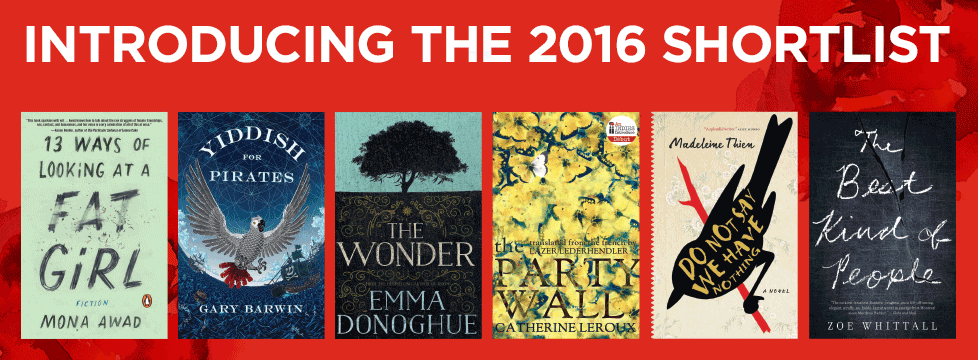

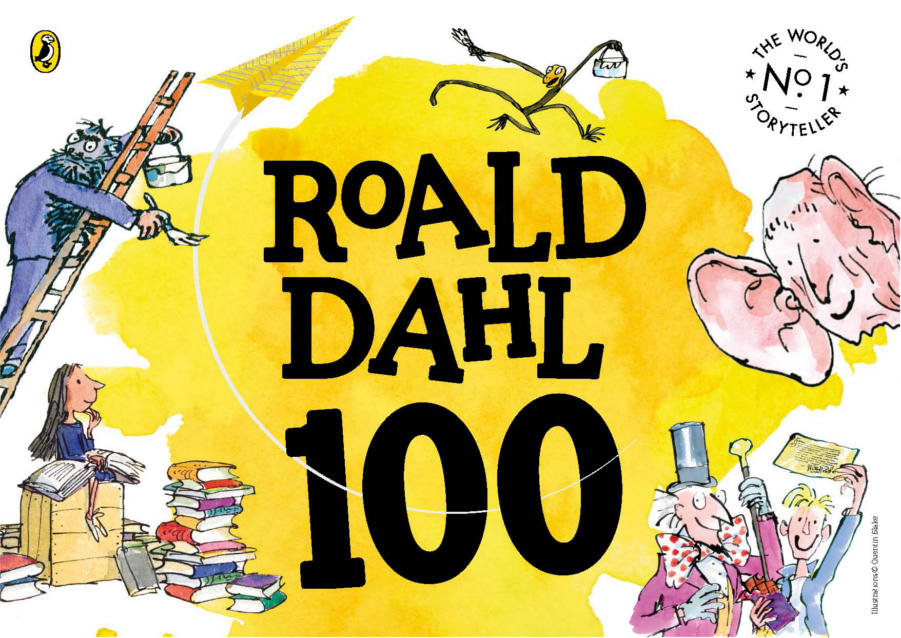
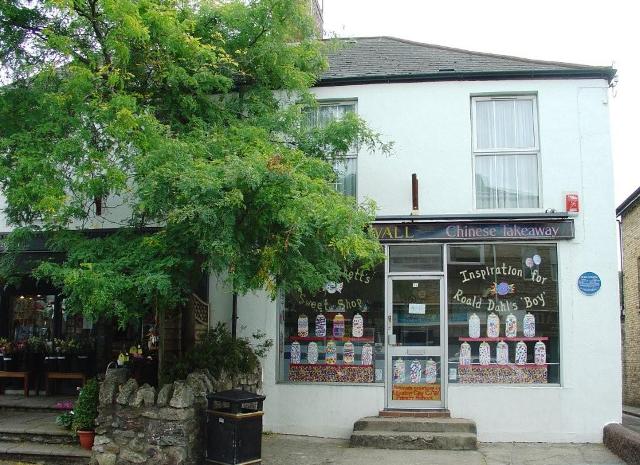
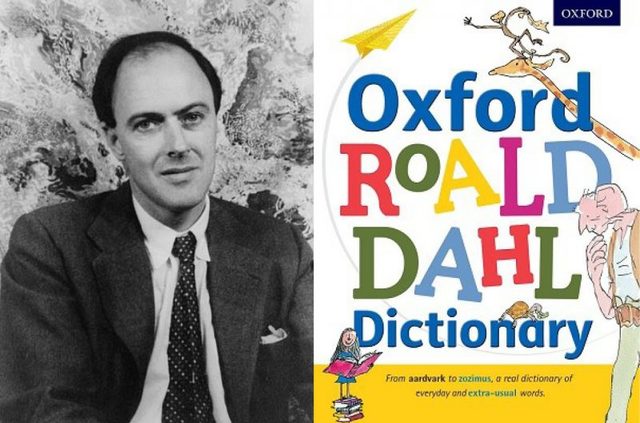
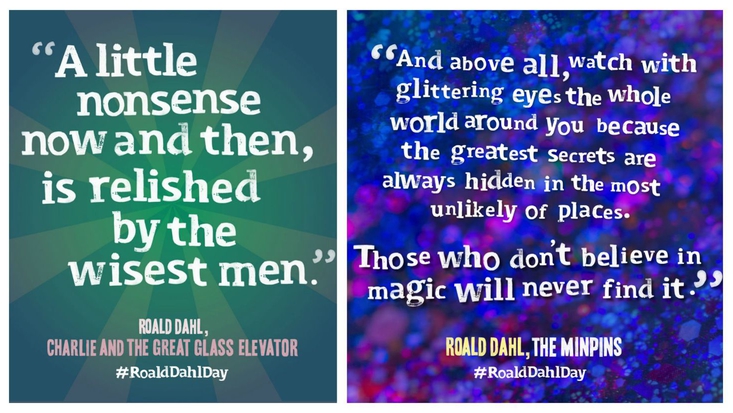
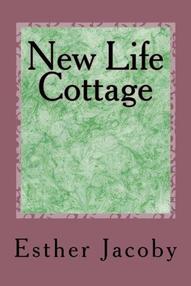
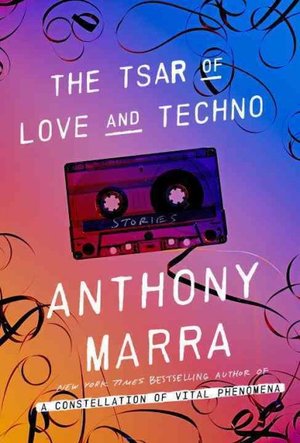
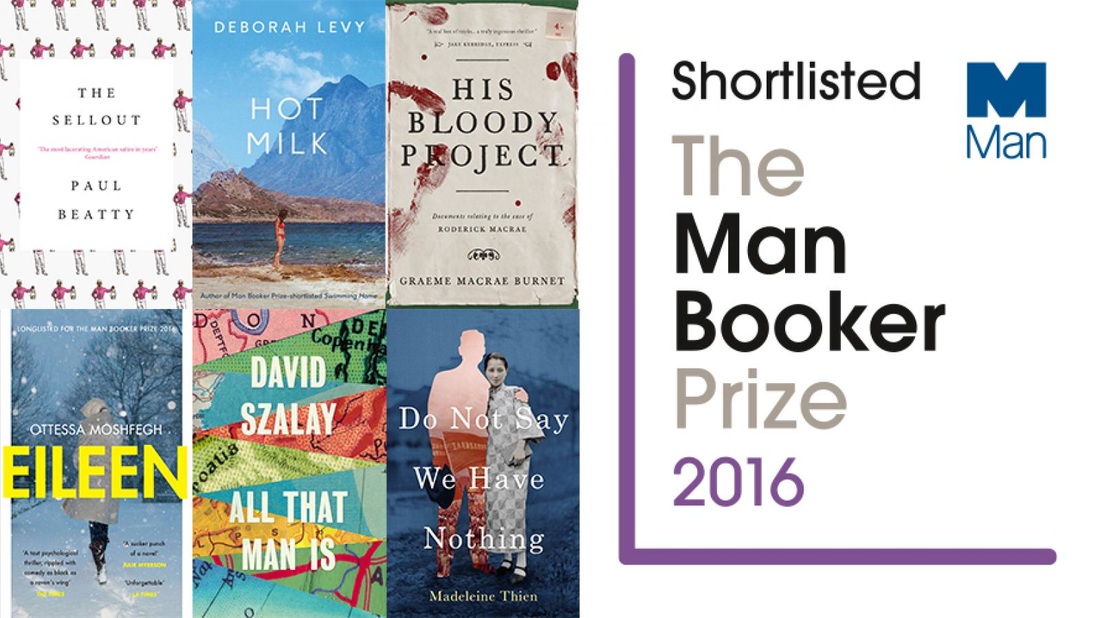
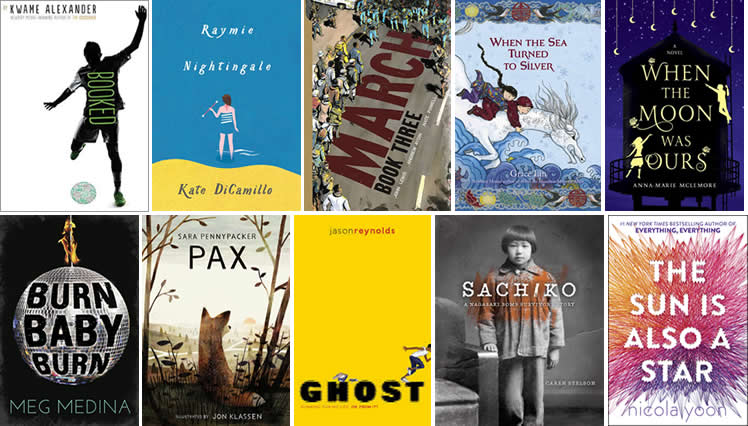
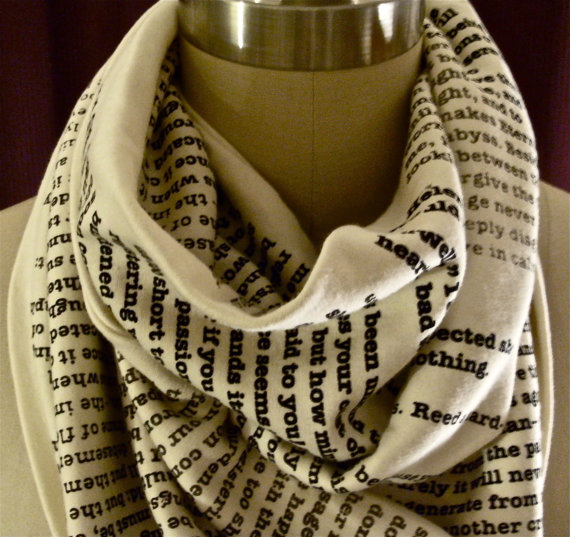
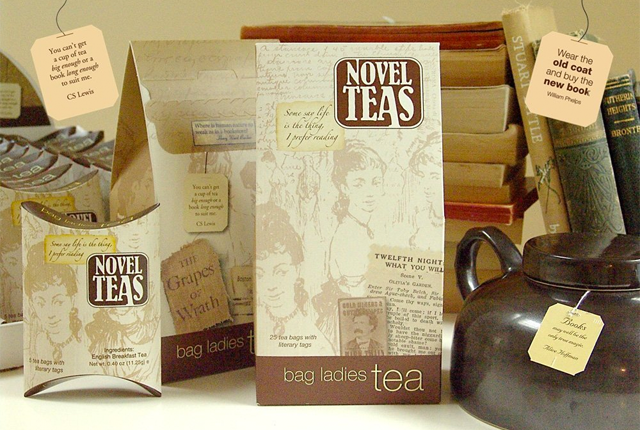
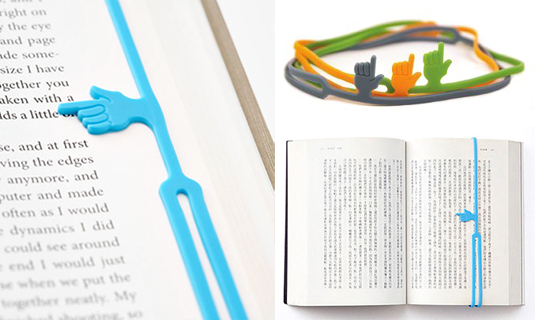
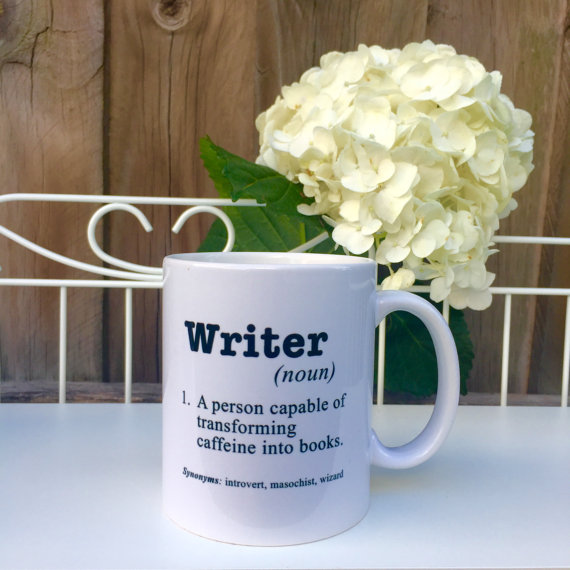

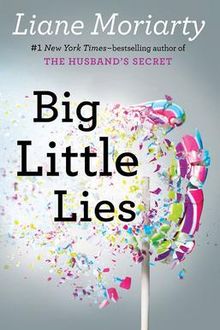
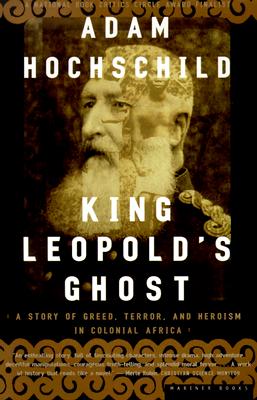
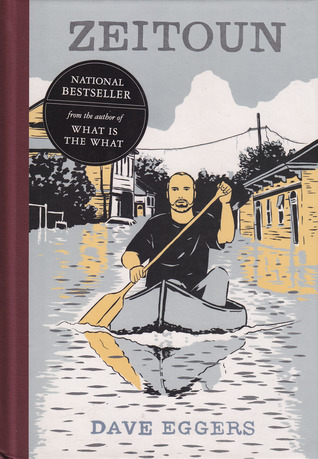
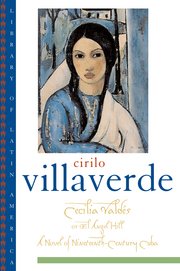
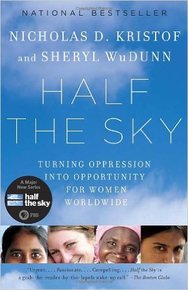



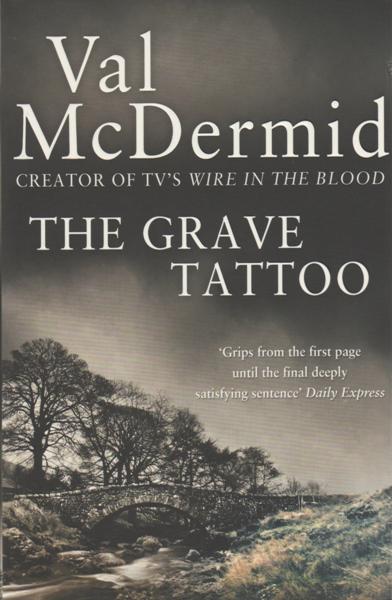



 RSS Feed
RSS Feed
